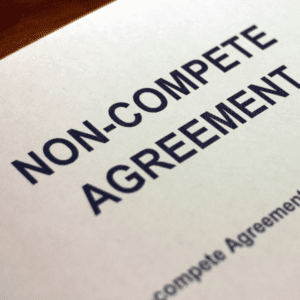On December 27, 2021, the Federal Trade Commission (FTC) announced a proposed nationwide ban on non compete agreements for all employers. If this proposed rule becomes law, it would significantly change the way that employers are able to protect their interests when it comes to competition from former employees.
A noncompete agreement is a contract that an employee signs that limits their ability to work for a competitor or start their own competing business for a certain period of time after leaving their job. These agreements are often used by employers to protect their intellectual property, trade secrets, and other confidential information. However, noncompete agreements can also be used to restrict employee mobility and potentially harm workers.
The FTC’s proposed ban on noncompete agreements would apply to all employers, regardless of size or industry. Under the proposed rule, employers would be prohibited from using noncompete agreements to prevent employees from working for a competitor or starting their own competing business. Employers would also be prohibited from retaliating against employees who do not agree to a non compete agreement.
The FTC is seeking public comments on this proposed rule. If you would like to submit a comment, you can do so through the Federal eRulemaking Portal or by mailing your comment to the Office of the Secretary, Federal Trade Commission, 600 Pennsylvania Avenue NW, Suite CC-5610 (Annex J), Washington, DC 20580.
There are a few key things to consider when commenting on this proposed rule:
- How would this proposed rule impact your business or industry?
- Do you think that a ban on non compete agreements is necessary to protect employees or do you believe that non compete agreements are important for protecting a business’s interests?
- Are there any potential unintended consequences of this proposed rule that you think the FTC should consider?
- Do you have any suggestions for alternative approaches to protecting a business’s interests without using noncompete agreements?
The FTC will be accepting public comments on this proposed rule until January 28, 2022. If you have an opinion on this issue, it is important to make your voice heard and submit a comment.
Here are a few examples of how the FTC’s proposed nationwide ban on noncompete agreements would impact employers and employees if it becomes law:
- An employee at a tech company signs a noncompete agreement that prohibits them from working for a competitor or starting their own competing business for two years after leaving their job. Under the proposed rule, this noncompete agreement would be invalid and the employee would be free to work for a competitor or start their own competing business without fear of legal action.
- An employee at a marketing firm is asked to sign a noncompete agreement as a condition of their employment. The employee decides not to sign the agreement and is subsequently not hired for the job. Under the proposed rule, this would be considered retaliation and the employer would be prohibited from using a noncompete agreement as a condition of employment.
- An employee at a law firm leaves their job to start their own law practice. The employee’s former employer sues them for violating their noncompete agreement. Under the proposed rule, the noncompete agreement would be invalid and the employee’s former employer would not be able to sue them for competition.
- An employee at a restaurant leaves their job to work for a competing restaurant. The employee’s former employer sues them for violating their noncompete agreement and requires them to pay a penalty. Under the proposed rule, the noncompete agreement would be invalid and the financial penalty would not be enforceable.
These are just a few examples of how the proposed rule could impact employers and employees. It is important to note that this is a proposed rule and has not yet become law.
For more information about non-compete disputes, contact an experienced commercial litigation attorney at Ayala at 305-570-2208.
You can also schedule a consultation online at https://www.lawayala.com/
You can also email directly trial lawyer Eduardo A. Maura at eduardo@ayalalawpa.com




